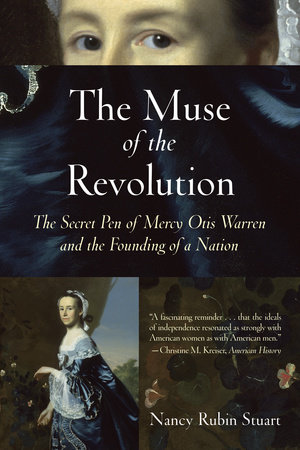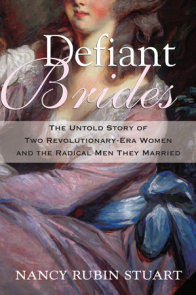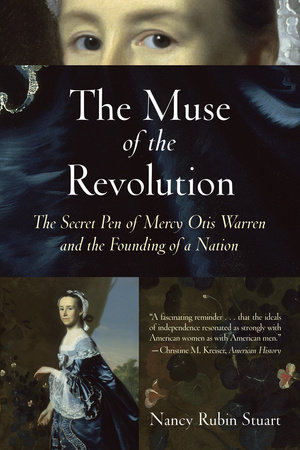

The Muse of the Revolution
By Nancy Rubin Stuart
By Nancy Rubin Stuart
By Nancy Rubin Stuart
By Nancy Rubin Stuart

-
$26.00
Jul 01, 2009 | ISBN 9780807055175
-
Jul 01, 2008 | ISBN 9780807097366
YOU MAY ALSO LIKE
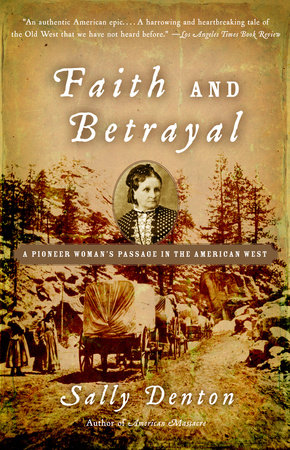
Faith and Betrayal
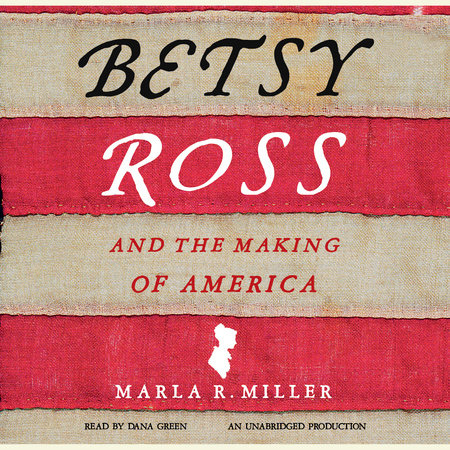
Betsy Ross and the Making of America
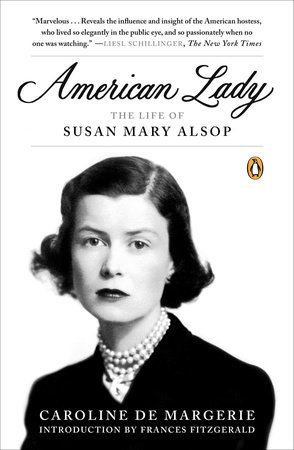
American Lady
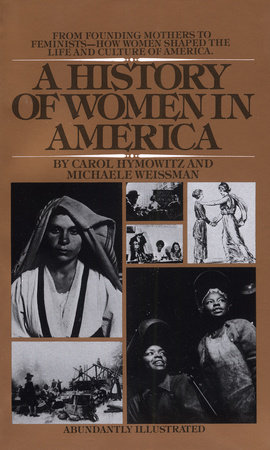
A History of Women in America
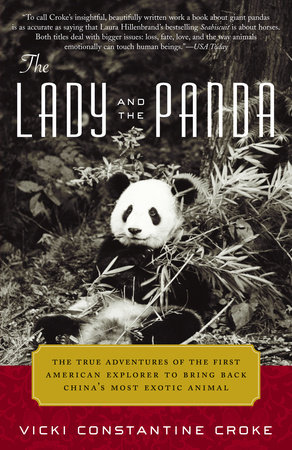
The Lady and the Panda

Great Loves
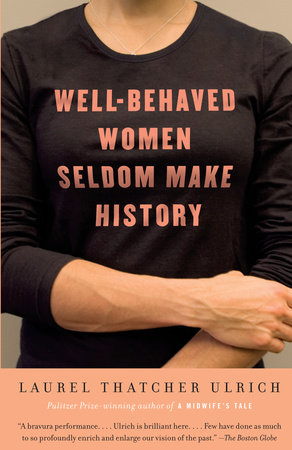
Well-Behaved Women Seldom Make History

Juliette Gordon Low
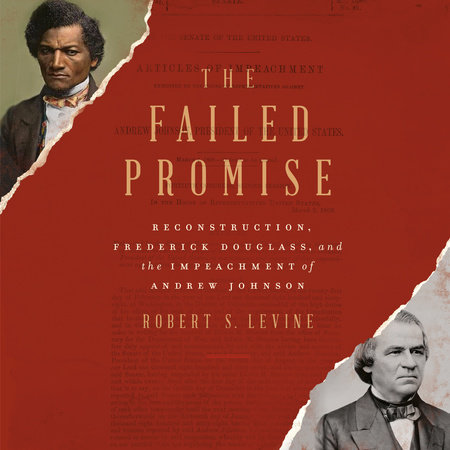
The Failed Promise
Praise
Stuart reminds us that the U.S. Constitution—notably the Bill of Rights—carries Mercy Otis Warren’s fingerprints as much if not more than those of most constitutional delegates. . . . This wonderfully researched and readable book has done an excellent job of giving another view of what it took to make this country.—Library Journal, starred review
“A valiant resurrection of an important early American author.”—Kirkus
“A fascinating reminder . . . that the ideals of independence resonated as strongly with American women as with American men.”—Christine M. Kreiser, American History
“Death by lightning, duels, treason, smallpox, 16-page rants written with quill pens, nervous breakdowns. This may sound like the stuff of an overwrought period novel, but it’s straightforward fact in Nancy Rubin Stuart’s nuanced biography of Mercy Otis Warren.”—Kathleen Willcox, Bust
“Stuart has artfully set the story in the context of the Revolution . . . . A lively introduction to the great Mercy Otis Warren.”—Edith Gelles, Wilson Quarterly
“Should be required reading in American history classes . . . . Warren was one of the great scribes of our American Revolutionary era.”—Larry and Saralee Woods, American Spirit
“Warren emerges as a fully fleshed-out woman with literary insecurities, intractable opinions and a high-strung temper as well as deep affection for her husband and sons. Stuart includes fascinating period details, focusing primarily on Warren’s home-front experiences of rampant inflation, scarcity of goods, high taxes and profiteering during the Revolution as well as typical 18th-century illnesses and family anxieties. Most poignantly, Stuart depicts Warren’s loneliness and despair after the deaths of three of her five sons. This account is valuable as an eyewitness play-by-play of the American Revolution.”—Publishers Weekly
21 Books You’ve Been Meaning to Read
Just for joining you’ll get personalized recommendations on your dashboard daily and features only for members.
Find Out More Join Now Sign In








